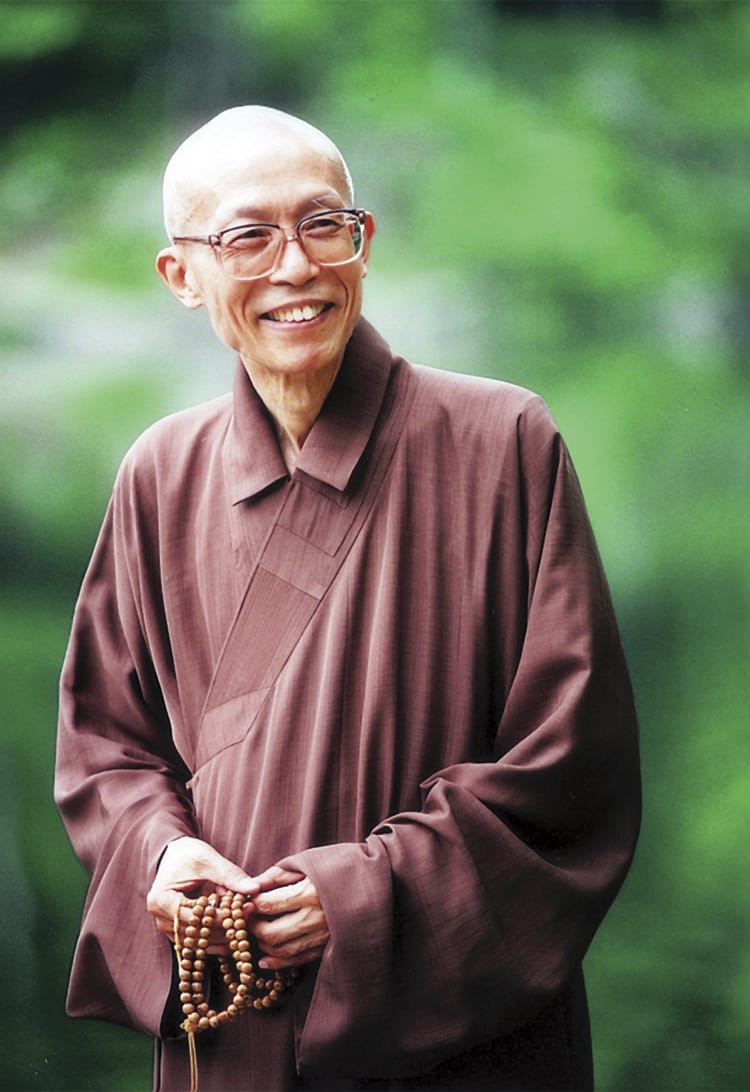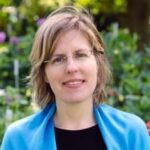We received an email from Dr. Jimmy Yu (Guogu) on behalf of Master Sheng Yen’s Dharma Drum Sangha. It includes Master Sheng Yen’s last teaching, his death poem.
Busy with nothing, growing old.
Within emptiness, weeping, laughing.
Intrinsically, there is no “I.”
Life and death, thus cast aside.
Jimmy Yu has kindly provided additional information about Master Sheng’s life and legacy, which you can read below. Jimmy Yu was one of Master Sheng Yen’s chief translators. He is currently an assistant professor of religion at Florida State University.
In the Summer 2009 issue of Buddhadharma: The Practitioner’s Quarterly, we will be publishing a teaching by Master Sheng Yen on the subject of living and dying with dignity.
Here’s Jimmy Yu’s full letter:
As you may have already heard, Master Sheng Yen (1930-2009) entered into nirvanic bliss in Taipei on February 3rd, 2009, EST 3 am (Taiwan time: February 3rd, 4 pm) at the age of 79 (this is the correct information). I am sending you this formal email on behalf of Dharma Drum Sangha to thank you for your support and concern.
My monastic name is Guogu and I was one of Master Sheng Yen’s chief translators. I have returned to lay life some years ago but still remain close to Master Sheng Yen. The Sangha members still call me by my monastic name. Just so you have a fuller picture of Master Sheng Yen, I’m including some pertinent information for your reference.
Master Sheng Yen was born into a humble farming family in Nantong County, near Xiaoniang Harbor, in Jiangsu Province on January 22, 1930 (December 4 in lunar calendar). As you know, Master Sheng Yen became a monk at age thirteen. He began as a frail novice, yet he was destined to become one of the most influential Buddhist clerics in modern Chinese history and in the renaissance of Western Buddhism. Master Sheng Yen was a Chinese lineage holder of both the Linji and Caodong Chan Buddhist schools, the founder of the Dharma Drum Order of Chan Buddhism, the founder of the Dharma Drum Mountain Center for World Education, the first Chinese cleric who received a Ph.D. degree in Buddhist studies from Rissho University in Japan, a stellar Buddhist scholar of Ming Buddhism and of Master Ouyi Zhixu (1599-1655), and an active advocate of environmental protection.
Master Sheng Yen came to New York in 1976, soon after receiving his Ph.D. He might have confined his activities to the pastoral guidance of the immigrant Chinese community. Instead, he embarked upon the more difficult challenge of teaching Chan to Americans. He overcame many obstacles: language, culture, prejudice, logistics and financial difficulties. Until 2006 when he became ill, he divided his time between New York and Taipei, training generations of Chan practitioners with methods skillfully adapted to the contemporary problems facing his students.
Master Sheng Yen was a dedicated scholar and prolific writer. His collected work, Fagu Chuanji, amounts to close to 200 volumes, covering topics as diverse as Tiantai and Huayan philosophies, vinaya, Buddhist scriptural commentaries, Indo-Tibetan and East Asian Buddhist histories, Chan Buddhist studies, and comparative religions. He also wrote many popular books introducing Buddhist teachings to both beginners and those with a more advanced understanding of Buddhism.
He spoke out for what he called spiritual environmentalism: the essential task of purifying our environment by first purifying our minds. This is more than just philosophy. It is a call for personal commitment coupled with practical goals that will benefit all the peoples of the world. Many in Taiwan and in other countries have responded to this exhortation with great enthusiasm.
Master Sheng Yen was one of the foremost contributors to the vital Humanistic Buddhism of Taiwan that blossomed in the 20th century. He was an exemplary leader of contemporary Chinese Buddhism, combining a deep understanding of Buddhadharma with an equally profound concern for the welfare of all sentient beings. He was a warm, insightful, and inspirational teacher to his many students around the world. All who encountered him were touched by his personal concern and his remarkable ability to communicate difficult ideas simply—always with wit, compassion, and a profound sense of humor. Master Sheng Yen will be deeply missed by Buddhist practitioners, scholars of Chinese Buddhism, and everyone who had the good fortune to meet him. Because of your gracious effort to publish his work, English readers are able to benefit from his teachings. From the depth of our hearts, thank you!
I will leave you with his last teaching, his death poem:
Busy with nothing, growing old.
Within emptiness, weeping, laughing.
Intrinsically, there is no “I.”
Life and death, thus cast aside.Sincerely,
Guogu (Dr. Jimmy Yu, Florida State University)

